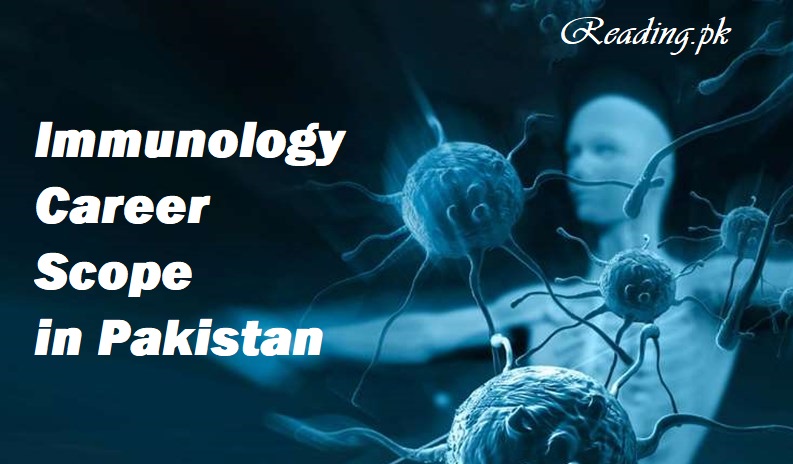You may get information on the aforementioned degree programme in immunology here. It is true that the majority of students are expressing interest in it. Because the human immune system is prone to weakness, immunologists will always be needed in our society’s scientific and medical fields. What should you do if your immune system deteriorates? You will undoubtedly seek such experts. These immunologists do extensive study on both the homoeopathic therapeutic range and the homoeopathic drugs. Human immune systems must be strengthened for the benefit of the medical field, which is why we want highly qualified professionals specialists in immunology.
[lwptoc]
Immunologists are medical researchers who focus on immune systems in living things. They often work in biomedicine, researching immune system impacts of external substances and cell architecture. Biologists are researchers who examine how living things respond to noxious substances like food and viruses. Infectious disease experts include medical microbiologists. Additionally, they can create more effective sterilisation techniques or antiviral medications. Although these medical researchers are less educated, biological technicians collaborate closely with them to gather data, conduct tests, and conduct trials that lead to successful outcomes.
What do Immunologists Do?
These medical immunologists might work in clinics or hospitals as well as from their own private offices. They must thus collaborate with other healthcare professionals to identify and address any immunological issues. To guarantee that treatment plans and immunological therapies may be carried out, these specialists must do all diagnostic procedures and weigh the risks and advantages.
- Learn about new ways to boost immunity.
- Immunologists discover new vaccines for various fatal diseases.
- Invent new treatments for diseases caused by low immunity, such as common allergies to HIV AIDS.
- They recommend diet and medication to strengthen the immune system.
Immunology Career Scope in Pakistan Courses and Job Options

Degrees Related to Immunology
You are able to obtain a BS, MS, or PhD in immunology. You need to pass both the FSc Pre-Medical and A-Level in order to be admitted to the BS programme. You may also need to pass an entrance exam for some universities. To teach or work as a scientist in this area, a Ph.D. is advised. The fields of medicine and epidemiology are intimately tied to classical immunology. It looks at how different bodily systems, infections, and immunity interact. The field of study known as immunology focuses on understanding how the immune system’s molecular and cellular components interact and function.
A student has to acquire a bachelor’s degree in biology or chemistry to become a doctor of medicine (MD). The MD graduate will be qualified to finish at least two years in an immunology fellowship following completion of an internal medicine residency. We might become more prone to illness if our immune systems are compromised. Immunologists have enhanced the immune system to better fight off many illnesses.
Immunology Career for Master’s Degree
- Epidemiologist.
- Biology Science Teacher
- Veterinarian.
- Medical and Clinical Laboratory Technician.
- Natural Sciences Manager.
Homoeopathy is a type of medicine that treats illnesses using homoeopathy. The Immunology Career and Scope, Education Requirements, Qualifications for Jobs, and Responsibilities. The immune system is completely destroyed by HIV/AIDS, a fatal illness. The patient becomes a prayer for a lot of other illnesses. Allergies of all kinds are widespread nowadays. Allergies can also result from compromised immunity to outside influences.
Major Subjects in Immunology
- Anatomy
- Physiology
- Biochemistry
- Medical Statistics and Research Methods
- Pathology
- Behavioral Sciences
- Information Technology
- Islamic Studies
- Pakistan Studies
- Chemical Pathology
- Blood Banking
- Hematology
Immunology Career in Pakistan
Employment Sectors
- Hospitals
- Forensic Nurse
- Assistant Nursing Superintendent
- Reference Labs
- Director for Nursing
- Public Diagnostic Labs
- Doctors Clinic
- Nurse Administrator
- Research labs
- Private Medical Laboratory Labs
- Nursing Lecturer
- Staff Nurse
- Biotechnology Laboratories
- Nurse Principal
- Researcher
- Non-Government Organizations
- Para Medical Training Centers
- Nurse Supervisor
Jobs Opportunities
An undergraduate degree will prepare you for many positions in immunology, microbiology, and molecular medicine, as well as biochemistry, virology, animal science, and biochemistry. You might be interested in these jobs as a science technician, laboratory assistant, or pharmacist representative. Teaching is an option, as well as medical or veterinary school.
A doctoral degree would allow you to research immunology at an academic or government hospital, Biotechnology Company, or a government laboratory. Although you will likely be researching the disease, looking at the immune system from the other end is possible. While some researchers might focus on the development and functioning of cells, others may be more interested in preventing or vaccinating against diseases such as malaria and tuberculosis.
Required Skills
They must be capable of doing fresh, modern medical research. They must possess the skills necessary to organise, create, and conduct controlled experiments. They should be competent to conduct experiments and apply suitable analytical methods. These immunologists must be proficient in data interpretation, article writing, and review writing. Any allergy or immunological condition should also be able to be identified and treated by them. It’s crucial to understand how to prescribe medications and therapies, as well as how to analyse patient samples and keep track of transplant recipients. Professionals in this industry must possess certain talents, which are crucial.
- You must have a passion for knowledge and research to become an immunologist.
- Must be interested in medical fields such as gene therapy, exon transplantation, and biochemistry.
- Scientists should only explore this field.
- This field requires you to love humanity and spend years researching one topic.
Immunology Career Options
In the medical and dental fields, hospitals, laboratories, research centers, colleges, pharmaceutical companies, research centers for cancer, HIV, AIDS, and other areas, Immunologists have many options.
Immunologists can treat all allergic and autoimmune conditions including:
- Systemic lupus erythematosus (SLE)
- Sarcoidosis.
- Scleroderma.
- Raynaud’s disease.
- CREST syndrome.
- Sjogren’s syndrome.
- Rheumatoid arthritis.
- Other arthritis.
As long as your academic resume is current, a job in microbiology might be lucrative. To get employment in fundamental research or academia, like with many life-science degrees, you will need to continue obtaining a Ph.D. or postdoctoral fellowships/grants. A Ph.D. could be necessary for industries or R&D, though.
Immunology Career Description
Research Microbiologist
Scientists who study or research microorganisms are known as microbiologists. They monitor the growth, structure, and development of tiny organisms using cutting-edge laboratory technology. They research parasites as well as bacterial, viral, and fungal organisms. They do out research to address a significant microbe-related issue. The development of a vaccination to boost dairy output is presently underway. Good research abilities are needed in this sector.
Clinical Microbiologist
Clinical microbiologists study microbes that can cause infections and sickness. They use specialised software, several identification techniques, and clinical trials to analyse and keep track of microbial cultures and samples. They are in charge of determining viral, parasite, and fungal infections. They often work in clinics or hospitals.
Patent Examiner
A patent examiner reports to the controller after reviewing patent and design applications. The Examiners help the Controllers with a variety of administrative, supervisory, procedural, and other tasks pertaining to the Act and Rules. They safeguard each new medication or vaccine’s copyright.
Pharmaceutical Salesperson
A healthcare practitioner who serves as a subject-matter expert for the pharmaceutical goods of the business is known as a pharmaceutical sales representative (PSR). They detect a need in a medical facility or other context and suggest the best medication. For pharmaceutical firms, research facilities, etc., they offer pertinent information and goods.
Clinical Biochemist
Testing patient samples and giving medical staff interpretations are the duties of the clinical biochemist. They are a section of the medical staff at a hospital who are in charge of identifying and treating patients’ illnesses. To find pathogens, they examine cerebrospinal fluid, blood, and urine.
Immunologist
A physician who treats immune system diseases is known as an immunologist. Doctors that specialise in the diagnosis and treatment of immune system problems are known as immunologists, allergists, or immunologists. Their responsibility is to study the immune system and create novel medications to strengthen it. Immunologists have various options to further their careers in healthcare facilities, academic medical centres, and pharmaceutical businesses.
Toxicologists
Scientists that have a thorough understanding of biology and chemistry are known as toxicologists. They frequently experiment with chemicals and other materials to see if they are poisonous or detrimental to people, other living things, or the environment. Their responsibility is to investigate the effects of microorganism-produced toxins on living things.
What is the salary of microbiologists in Pakistan?
Well, because it differs from industry to industry, your compensation will depend on where you work. Additionally, it depends on the knowledge and expertise of the individual. However, according to the most recent statistics, a microbiologist’s average monthly compensation in Pakistan starts at 30,000 and may go as high as PKR 1 million per year.
